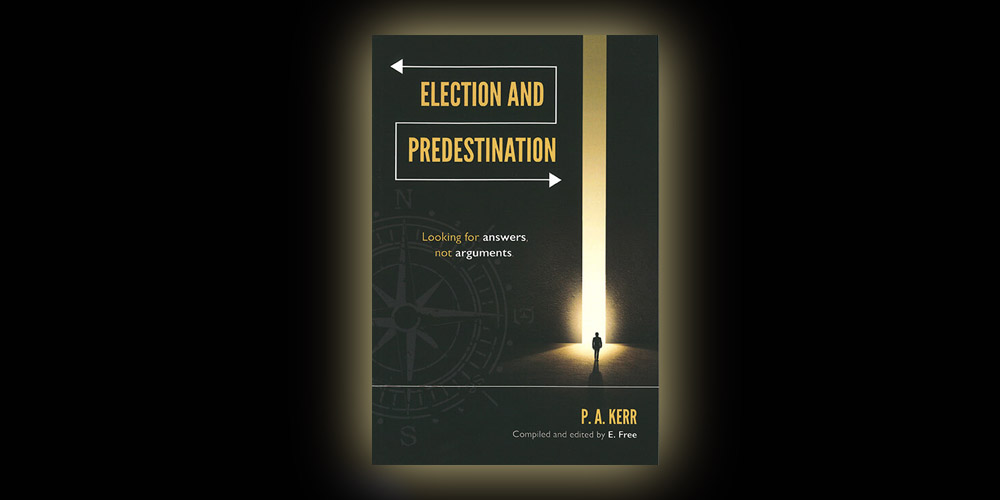This book is a personal testimony and record of the author’s theological struggle and journey out of the “consensus views” (Calvinism and Arminianism) regarding election and predestination. The quest was to allow the Bible to define its own words, thus, no ultimate authority is accorded to church history, creeds, theologians, etc. Rather, election and predestination are studied in the order and way in which God unfolded these truths in the Bible.
The pertinent Hebrew and Greek words are surveyed, revealing a consistent pattern of the Lord choosing people, places and things for purpose and privilege. There are elect angels, Mount Zion is chosen, the temple is chosen of God, Abraham is elect, and his family are elect “in Him” (i.e., all physical descendants of Abraham were elect.)
A surprising realization is that within the election of Israel are further subsets of elect lines: the priesthood, the kingly line, and the messianic line. (Messiah, the Servant of Yahweh, is pre-eminently the Elect and Beloved of the Father.)
None of these “elections” involved being chosen for an eternal destiny. The notion of “individual election for salvation” is a definition imported from outside the Bible.
The Old Testament reveals that the nation of Israel as a nation is chosen for the purpose of being representatives of God’s goodness, grace, and glory to the nations of the world. Though belonging to the elect group, each Israelite still had to individually make the choice to believe in, follow, and obey Yahweh. Sadly, many rebelled in unbelief and are eternally lost. Strikingly, we see some non-elect (not offspring of Abraham) chose to believe in Yahweh and are eternally saved!
A key discovery is that though election is exclusive on one hand (privilege and purpose bestowed on some and not others), yet on the other hand it is inclusive in that the purpose is not to shut others out, but rather for the elect to declare and display God’s truth and grace so that all might come to believe in and follow the true God. This principle is clearly seen in Israel (Ex. 19), in the apostles (John 15-17) and in the Church (Matt. 28:18-20; Eph. 1:4).
The New Testament presents the Church, the body of Christ, as elect in Christ from before the foundation of the world. Not individuals chosen for salvation, but the body of Christ chosen for the purpose of being holy and blameless (Eph. 1:4) as a community of witnesses, royal priests preaching the grace of God in Jesus Christ, and imploring all to be reconciled to God (2 Cor. 5:21).
Throughout the book key texts are examined, repeatedly revealing that election is not to salvation. A person is saved by faith when they hear the gospel, repent, and trust the promise of God that He has provided the means of redemption, forgiveness and reconciliation in the Person and work of Jesus Christ. When one receives Christ, he is joined to the body of Christ and enters into the inheritance of all the purposes, privileges, blessings, and responsibilities of the redeemed company of God’s children.
Whereas the Old Testament and Gospels reveal election as including both purpose and privilege, the epistles clarify predestination as specifically focusing on the idea of privilege—both immediate privilege and eternal privilege related to the “end destination” of adoption and conformity to the Lord Jesus Christ.
Israel is examined in the New Testament context, and a detailed exegesis of Romans 9-11 undertaken. Clearly shown is that God’s grace is not restricted, and that God is not finished with Israel yet!
God loves the whole world. The invitation, “whoever calls upon the Name of the Lord will be saved” is not a deceitful statement obscuring a secret that only a few predetermined select can call on the Lord. Rather, it is a genuine, sincere call of grace for everyone to repent, believe, and receive the Savior, entering into a God-given purpose and privilege!

